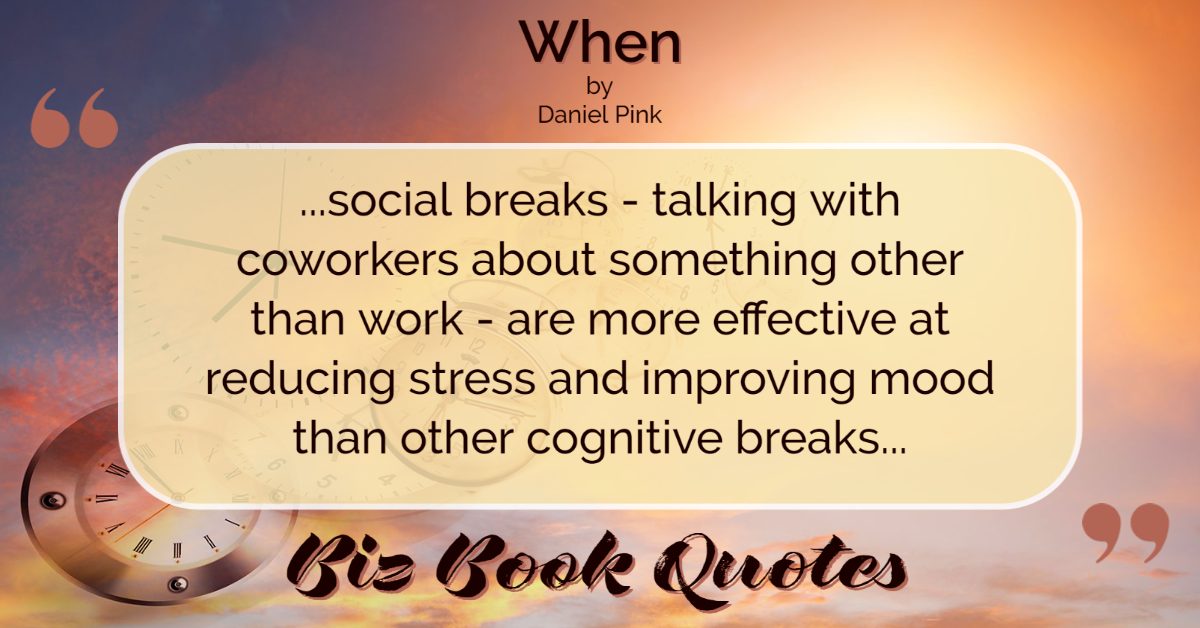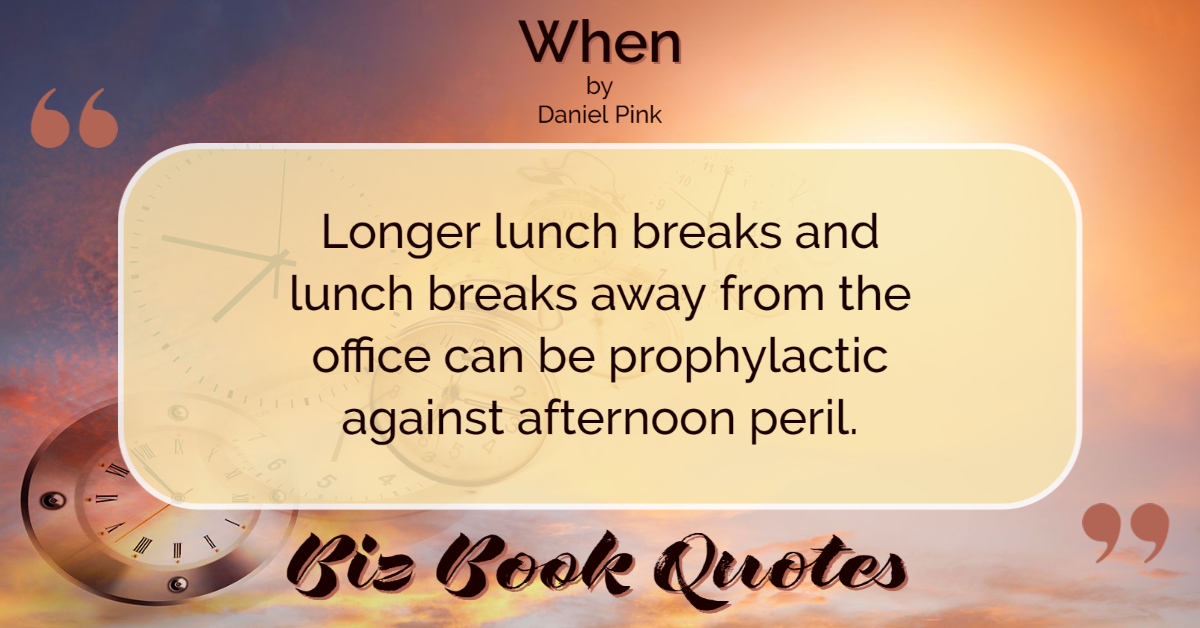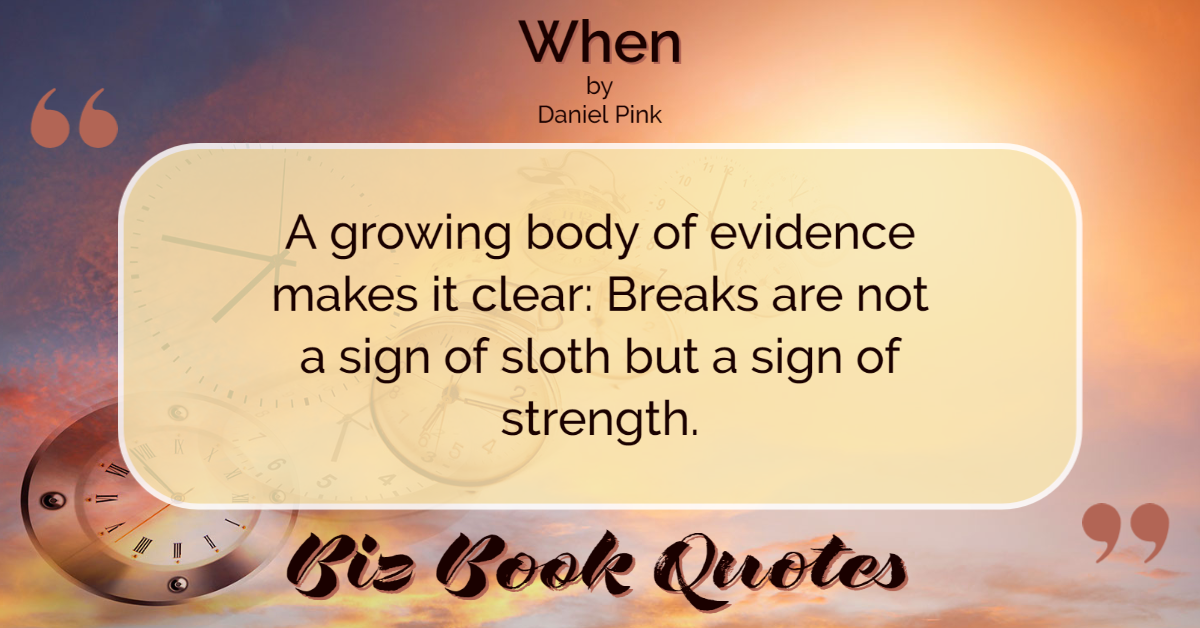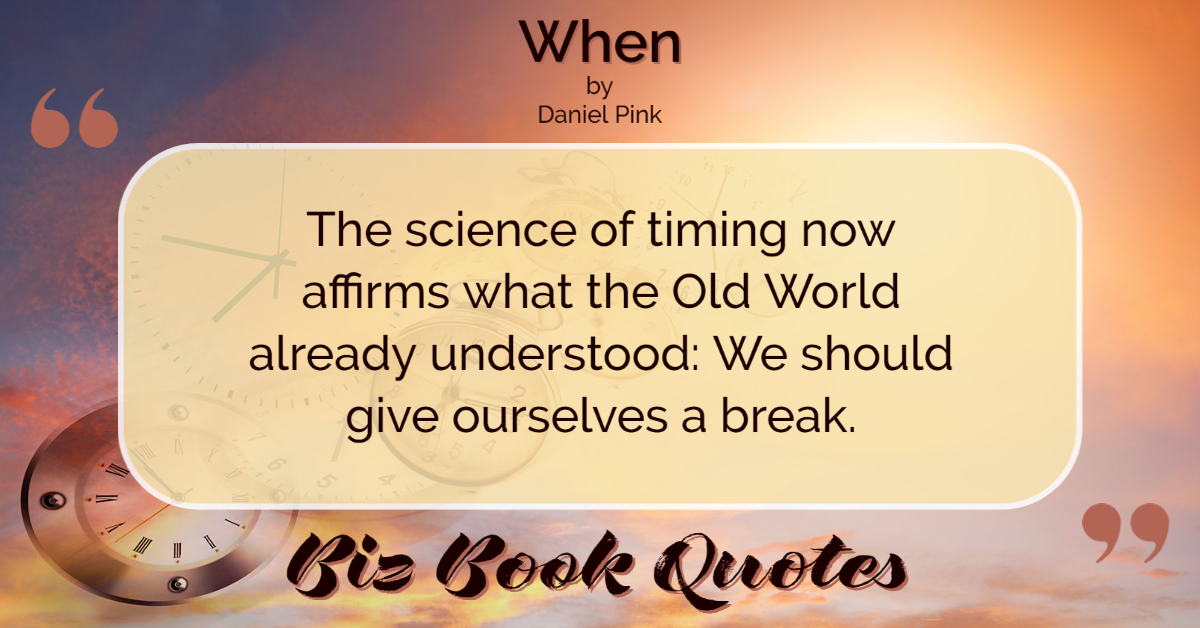|

|
When:
Short breaks from a task can prevent habituation, help us maintain focus, and reactivate our commitment to a goal.
|
61 |
|

|
When:
…short breaks are more effective than occasional ones.
|
61 |
|

|
When:
…social breaks – talking with coworkers about something other than work – are more effective at reducing stress and improving mood than other cognitive breaks…
|
62 |
|

|
When:
Taking a few minutes to be in nature is better than spending those minutes in a building. Looking out a window into nature is a better micro-break than looking at a wall of your cubicle.
|
62 |
|

|
When:
…it’s time we paid more attention to lunch, because social scientists are discovering that it’s far more important to our performance than we realize.
|
64 |
|

|
When:
The most powerful lunch breaks have two key ingredients – autonomy and detachment.
|
65 |
|

|
When:
Longer lunch breaks and lunch breaks away from the office can be prophylactic against afternoon peril.
|
65 |
|

|
When:
The overall benefits of napping to our brainpower are massive, especially the older we get.
|
65 |
|

|
When:
A growing body of evidence makes it clear: Breaks are not a sign of sloth but a sign of strength.
|
70 |
|

|
When:
The science of timing now affirms what the Old World already understood: We should give ourselves a break.
|
71 |











